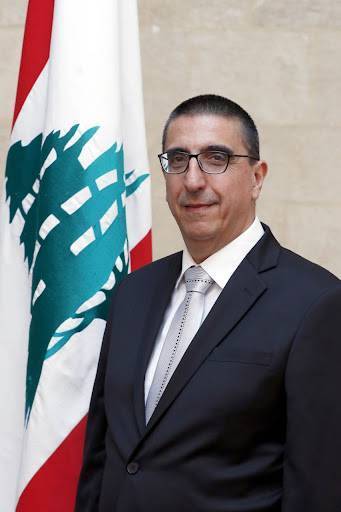
Social Affairs Minister Hector Hajjar promised to push forward with ration card program (Credit: Dalati and Nohra)
BEIRUT — A group of protestors stormed into the Social Affairs Ministry Friday demanding to meet Minister Hector Hajjar, who spoke with them before holding an impromptu press conference.
Here’s what we know:
• According to local media outlets, the protestors removed a picture of President Michel Aoun and hung in its place a banner of the October 17 revolution. “Where is the awaited ration card program?” one protestor said referring to the fact that the ration card program, which was meant to provide assistance to the most vulnerable families simultaneously with the lifting of subsidies, is long-delayed in being implemented.
• Videos also showed protestors shouting at Hajjar and ridiculing him as he was attempting to answer their questions, after which he retreated to his office and spoke to the press.
• Speaking to the press, Hajjar said that he is going to meet today with Parliament Speaker Nabih Berri and ask him for an “exceptional approval” to start the registration process for the World Bank-funded Emergency Social Safety Net cash assistance program and the government's ration card program on Dec. 1.
• Hajjar also said that he is working on securing the funding for the ration card program with the World Bank which according to Hajjar expressed interest in funding the program. However, World Bank officials have said they would not finance the government ration card before the ESSN program is up and running.
• Parliament was supposed to approve required amendments to the law authorizing the ESSN program late October before the parliamentary session was suspended amid a dispute over electoral law amendments and quorum rules.
• The registration for the ration card program was announced by the previous government in September and was supposed to begin Sept. 15 but has not yet launched. On the other hand the ESSN program, which would also provide cash assistance to needy households, was approved by the World Bank in January and initially approved by the Parliament in March, but has been held up since then due to a series of procedural issues, including amendments to the agreement made by Parliament that were not approved by the World Bank.